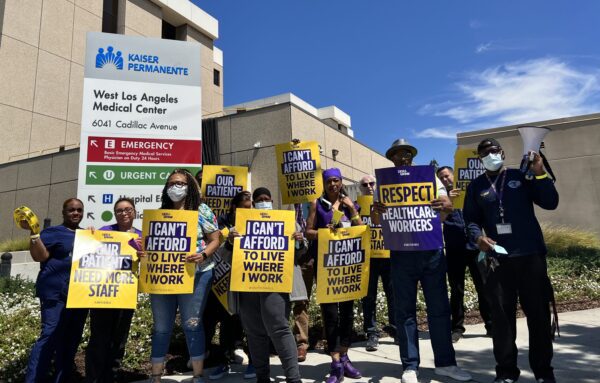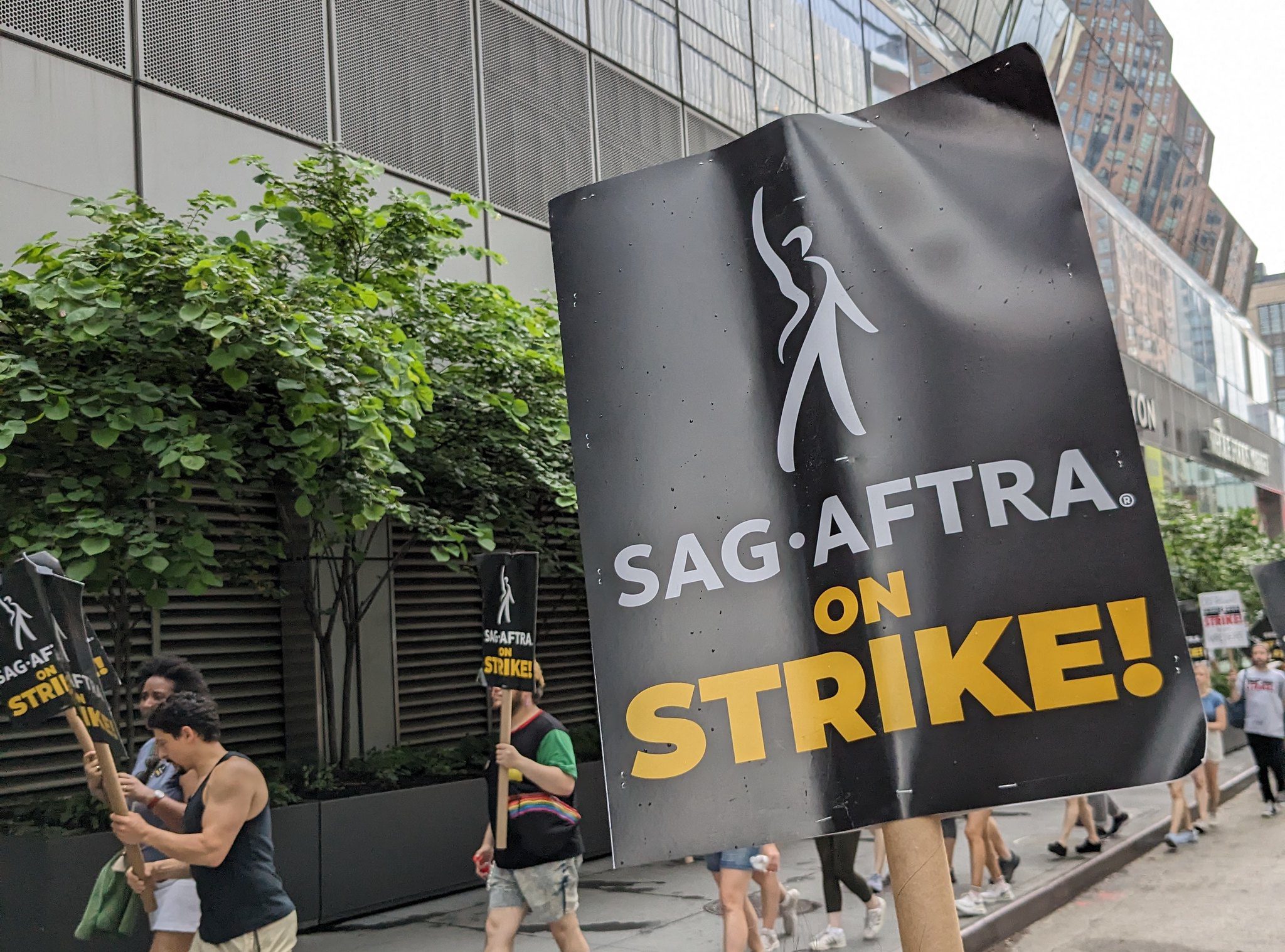Kaiser Permanente and the union representing thousands of health care workers reached a tentative deal Friday that could end the labor dispute that resulted in a recent three-day strike.
“The frontline healthcare workers of the Coalition of Kaiser Permanente Unions are excited to have reached a tentative agreement with Kaiser Permanente,” the union posted on social media. “We are thankful for the instrumental support of Acting US Labor Secretary Julie Su.”
In a statement Friday, Kaiser said, “The new four-year agreement will offer Coalition-represented employees competitive wages, excellent benefits, generous retirement income plans, and valuable job training opportunities that support their economic well-being, advance our shared mission, and keep Kaiser Permanente a best place to work and receive care.”
Roughly 75,000 workers represented by the Coalition of Kaiser Permanente Unions walked off the job from Oct. 4 through Oct. 6 in what the union billed as the largest health care strike of its kind in U.S. history. Workers walked picket lines across California and in Colorado, Washington, Oregon, Virginia and Washington, D.C.
The union coalition has been pushing for higher wages commensurate with inflation, increased staffing and working conditions.
According to the Kaiser, the tentative agreement establishes new minimum wages over three years for Coalition-represented employees that will reach $25 an hour in California and $23 an hour in other states where Kaiser Permanente operates. The tentative deal also provides guaranteed across-the-board wage increases totaling 21% over four years, and increases investments in professional development and job training to help address the staffing crisis, Kaiser said.
The tentative agreement now goes to the more than 85,000 Kaiser Permanente employees who are represented by coalition unions for ratification. The ratification process will begin on Wednesday. The Coalition unions have withdrawn their notices for a November strike.
The healthcare company previously affirmed its commitment to hiring, confirming that it has already reached a goal of hiring 10,000 new union-represented employees before the end of the year.
“In total over the past two years, Kaiser Permanente has hired more than 50,000 people to join our teams,” according to the company.
The week of the strike, Kaiser officials issued a statement saying rising inflation has led to a “massive surge” in expenses, and has made it tough for the company to balance taking care of its employees with being affordable to patients.
“As noted in a recent report from the American Hospital Association, rising inflation has led to health care experiencing a ‘massive surge’ in expenses driven by drugs and supplies, equipment shortages, staffing costs and supply chain disruptions,” Kaiser officials said. “At the same time, in the wake of the pandemic, demand for care has increased dramatically, as people come in for care that has been delayed. Kaiser Permanente is not immune to these inflationary pressures.”
Kaiser officials said the company was offering:
- “across-the-board” wage increases in all markets over four years;
- an improved Performance Sharing Plan with the potential for payouts of up to $3,750;
- minimum wages of $23 an hour in California and $21 an hour in other markets; and
- renewal of tuition assistance and training programs.
Among the workers who were involved in the strike were licensed vocational nurses, emergency department technicians, radiology technicians, ultrasound sonographers, teleservice representatives, respiratory therapists, X- ray technicians, certified nursing assistants, dietary services, behavioral health workers, surgical technicians, pharmacy technicians, transporters, home health aides, phlebotomists and medical assistants, union officials said.
Updated Oct. 13, 2023, 12:50 p.m.







